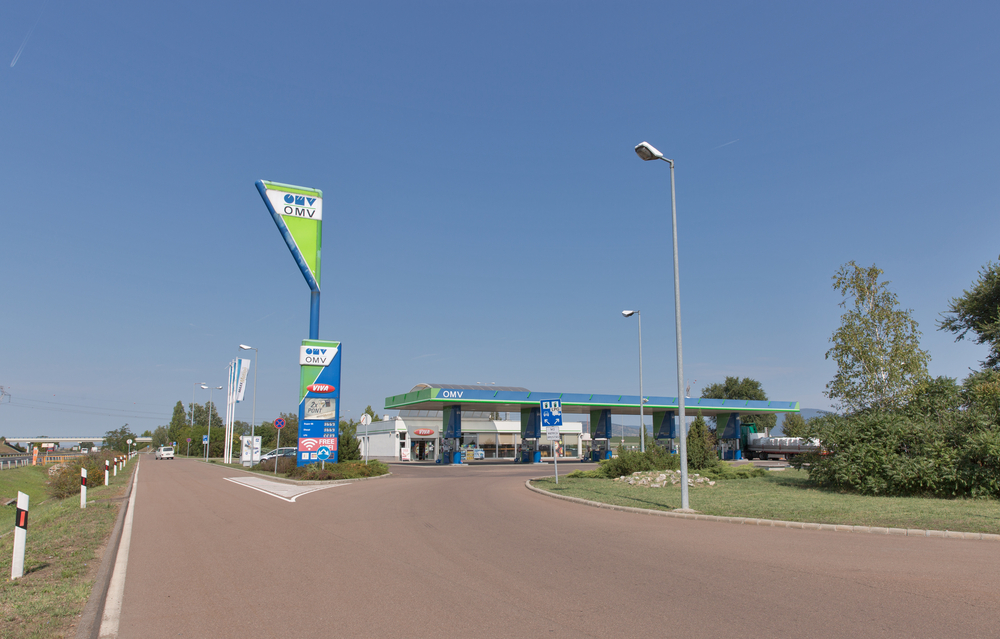If you’re planning a trip to Hungary by car, here’s what you need to know about traveling, the cost of toll roads, road conditions, fuel prices, parking, traffic rules, and fines.
When traveling to Hungary by car, there are a few key things to know, including the cost of driving on highways, the existence of toll bridges and tunnels, fuel prices in Hungary, traffic rules and fines, and the permissible blood alcohol level. Here’s what you need to know:
Roads in Hungary
Hungary is a relatively flat country with no tunnels, toll bridges, or interesting highways like those in Austria or Romania. However, there are some important details to consider. From the Ukrainian border in Chop, it takes about half an hour of driving to reach the paid M3 highway, and it remains quite monotonous until you get close to Budapest. Beyond the Hungarian capital, the road infrastructure is more developed, offering gas stations, cafes, shops, more interesting and beautiful road intersections, and a view of Lake Balaton if you are heading towards Croatia, for example.
Toll Fees in Hungary
Hungary is a common transit country for travelers by car. The fees for using Hungarian roads depend on the duration of your stay. Currently, you can purchase a vignette for 10 days for €16.60 or one for a month for €26.90. There is also an annual option, but it is unlikely to be needed by most travelers. The Hungarian vignette is electronic, so there are no stickers involved. A receipt received upon payment, or a special voucher printed when paying online serves as proof of payment.

One important detail to note is that you must pay for the vignette BEFORE entering the paid road, as indicated by the corresponding sign. You can conveniently pay for the vignette at the first gas station after crossing the border. Simply mention “vignette” and present your vehicle registration document (technical passport). The cashier will enter your vehicle’s details into the system and print a receipt; make sure to check it. After this, you can drive past police checkpoints and mobile scanners without any issues.
You can also pay for the vignette online through this website. I recommend this method if you know your travel dates for certain.
What Happens If You Enter a Paid Road Without a Vignette?
If you accidentally enter a paid road without a vignette, for example, because you missed a gas station, in 99% of cases, you won’t be noticed, especially on short sections. Normally, there are no checkpoints at the entrance to the highway. However, don’t delay and purchase the vignette (pay the fee) at the first gas station.
Are There Free Roads in Hungary?
Yes, there are free roads in Hungary. However, for transit travelers, it is not recommended to save money by using these roads, as you will consume more fuel and lose time. Additionally, the comfort and pleasure of driving may be compromised.
Fines for Driving Without a Vignette
Driving on paid roads in Hungary without a valid electronic vignette can result in a fine of 14,875 forints, approximately €56, if paid on the spot or within 30 days. For late payment, the fine increases to 59,500 forints.
Fuel Stations and Fuel Prices
The price of 95-octane gasoline in Hungary costs around €1.51 per liter. In cities, fuel is slightly cheaper, while on highways, it can be more expensive.
Fueling up is a straightforward process. Pull up to a fuel pump, insert the nozzle into your vehicle’s tank, and fuel should begin flowing. After fueling, proceed to the cashier to pay. Credit cards and cash in forints are accepted everywhere, and on highways, you can also pay with cash in euros.
Blood Alcohol Content Limits
Hungary has a strict zero tolerance policy for alcohol while driving. Any measurable amount of alcohol in your blood is prohibited. Violating this rule can result in a fine of up to 150,000 forints.

Parking in Hungary
In Budapest and other major cities, parking is typically paid. The cost depends on the area or parking zone and ranges from 129 to 400 forints per hour. On Sundays, parking in Budapest is free, and on Saturdays, it is paid only from 8:00 to 12:00. When planning your transit or short-term trip, keep this in mind.
You can pay for on-street parking at parking meters, and you should place the parking ticket on your windshield. The maximum parking time is usually 2-3 hours, so be sure to check the signs on the parking meters.
For longer stays or overnight parking, consider using parking lots. They are plentiful even in central Budapest, and there are also fenced parking areas. The cost of overnight parking in central Budapest ranges from €8 to €15, with multilevel parking garages in the city center being more expensive. Cheaper options are available in enclosed parking lots located elsewhere.
Fines for Illegal Parking
Fines for incorrect parking can be up to 30,000 forints, which is over €100.
Remember that Hungary takes road safety seriously, and the police are known for their strict enforcement of traffic rules. So, drive safely and follow the rules to ensure a smooth and enjoyable journey in Hungary.
Speed Limits and Some Traffic Rules
Speed limits in Hungary are typically indicated by road signs. In Hungary, like many other European countries, the following speed limits apply:
- 130 km/h on highways
- 110 km/h on main roads
- 90 km/h outside populated areas
- 50 km/h in cities
Speed is primarily monitored using radar, and the enforcement is generally strict. While driving on highways, the usual speed is 130 km/h, and occasionally, some drivers accelerate to 150-160 km/h without facing any issues.
Transporting Children and Seatbelts
When traveling with children under the age of 3, you are required to use special child seats. Children under 150 cm in height are not allowed to sit in the front seats of the car. Violating these rules can result in a fine of 45,000 forints.

Seatbelts are mandatory for both front and rear passengers. The fine for not wearing a seatbelt ranges from 15,000 to 40,000 forints, depending on whether the violation occurs within a populated area, outside of one, or on a highway.
Mobile Phone Use While Driving
Using a mobile phone while driving is prohibited in Hungary, as it is in many other European countries. Violating this rule can lead to fines ranging from 10,000 to 20,000 forints.
Emergency Numbers and Mandatory Equipment in the Car
In case of emergencies, the following numbers can be dialed:
- Emergency services: 112
- Police: 107
- Ambulance: 104
- Fire department: 105
It is mandatory to have the following equipment in your car:
- High-visibility vest
- First-aid kit
- Fire extinguisher
- Emergency stop sign
Winter Tires in Hungary
In Hungary, it is not mandatory to switch to winter tires during the winter season, and you can use any type of tire except studded ones.
Renting a Car in Hungary
If you plan to rent a car in Hungary, you can search for rental options at Budapest Airport and various other locations using platforms LocalRent. The process is user-friendly and straightforward.
It’s advisable to have a credit card with a sufficient credit limit when renting a car. This allows the rental company to block a deposit from your credit funds, which is done discreetly and without causing any inconvenience to you.
Booking a Hotel in Hungary
For searching and booking hotels or apartments in Hungary, I recommend using Booking.com.